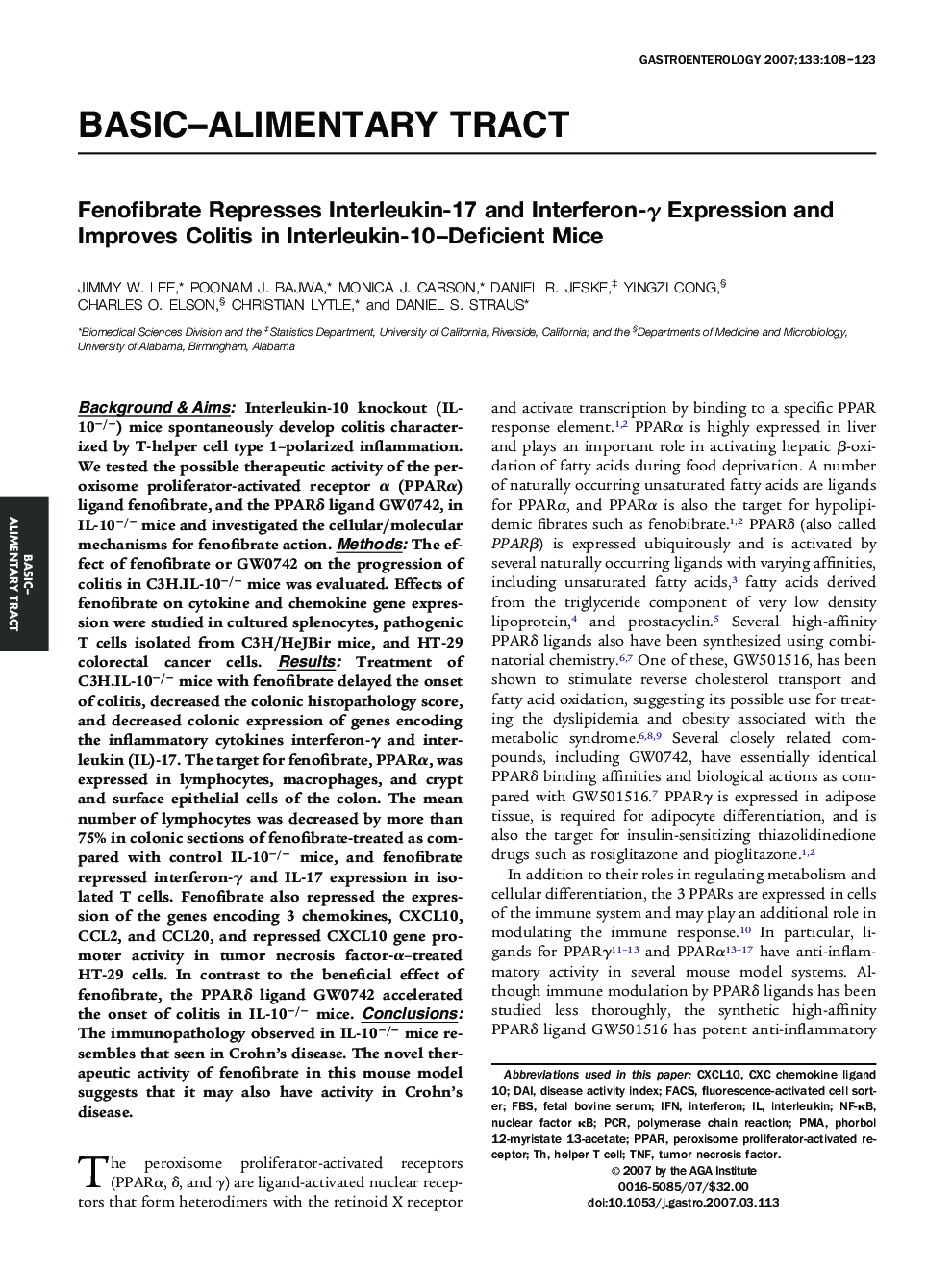| Article ID | Journal | Published Year | Pages | File Type |
|---|---|---|---|---|
| 3296762 | Gastroenterology | 2007 | 16 Pages |
Background & Aims: Interleukin-10 knockout (IL-10−/−) mice spontaneously develop colitis characterized by T-helper cell type 1–polarized inflammation. We tested the possible therapeutic activity of the peroxisome proliferator-activated receptor α (PPARα) ligand fenofibrate, and the PPARδ ligand GW0742, in IL-10−/− mice and investigated the cellular/molecular mechanisms for fenofibrate action. Methods: The effect of fenofibrate or GW0742 on the progression of colitis in C3H.IL-10−/− mice was evaluated. Effects of fenofibrate on cytokine and chemokine gene expression were studied in cultured splenocytes, pathogenic T cells isolated from C3H/HeJBir mice, and HT-29 colorectal cancer cells. Results: Treatment of C3H.IL-10−/− mice with fenofibrate delayed the onset of colitis, decreased the colonic histopathology score, and decreased colonic expression of genes encoding the inflammatory cytokines interferon-γ and interleukin (IL)-17. The target for fenofibrate, PPARα, was expressed in lymphocytes, macrophages, and crypt and surface epithelial cells of the colon. The mean number of lymphocytes was decreased by more than 75% in colonic sections of fenofibrate-treated as compared with control IL-10−/− mice, and fenofibrate repressed interferon-γ and IL-17 expression in isolated T cells. Fenofibrate also repressed the expression of the genes encoding 3 chemokines, CXCL10, CCL2, and CCL20, and repressed CXCL10 gene promoter activity in tumor necrosis factor-α–treated HT-29 cells. In contrast to the beneficial effect of fenofibrate, the PPARδ ligand GW0742 accelerated the onset of colitis in IL-10−/− mice. Conclusions: The immunopathology observed in IL-10−/− mice resembles that seen in Crohn’s disease. The novel therapeutic activity of fenofibrate in this mouse model suggests that it may also have activity in Crohn’s disease.
